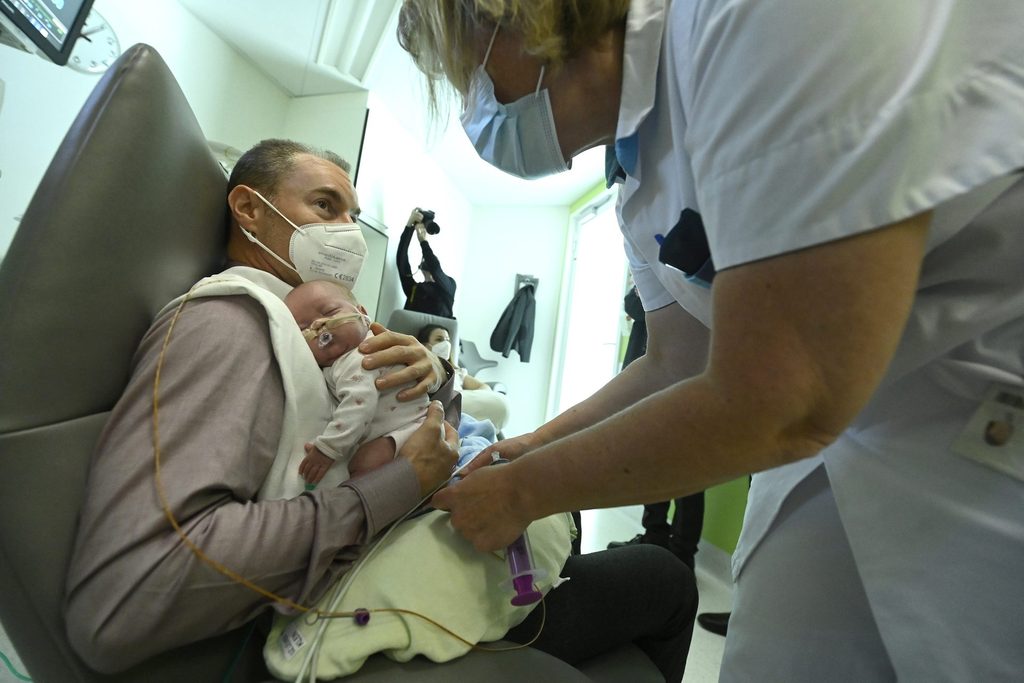Start-up Innocens, co-founded by neonatologist David Van Laere, is working on smart monitoring using AI to detect sepsis in premature babies faster.
Around 2% of babies are born premature every year at around 32 weeks of pregnancy. These babies have a very low birth weight and are more prone to infections. Consequently, they have to be kept in intensive care for an average of 50 days.
One in five premature babies develops sepsis – a life-threatening bacterial bloodstream infection – and one in ten dies of the infection.
Van Laere explained that sepsis is perfectly treatable with antibiotics. However, the challenge lies in early detection as many of the symptoms can be unclear in the beginning. "We collect all kinds of data via sensors on the skin," the UZA neonatologist said. "But decisions on further diagnostics remain largely based on the gut feeling of healthcare providers."
Van Laere and his team wanted to find a solution "to detect infection faster and save more children".
Since 2018, therefore, they have been collaborating with US IT giant IBM to develop an AI system for around-the-clock monitoring for every premature baby which will allow healthcare providers to detect infections in the bloodstream earlier.
Positive feedback
In the first months of testing the technology, the team showed that "a majority of sepsis infections were detected with high sensitivity earlier in the disease process". Van Laere stated that the time saved using the system was between 2-12 hours. "The system picks up on subtle changes that we don't always notice. The sepsis warning signs show earlier."
The monitoring system is still in its testing phase but Van Laere stated that the feedback was "already very positive". The technology also aims to lighten the load for overworked medical staff, although even with this additional means of keeping an eye on patients, Van Laere confirmed to De Tijd that hospital staff would "always remain in the driver's seat."
Related News
- Give 25 week premature babies a chance, say neonatologists in Flanders
- Mothers of premature babies lose leave days under current legislation
Van Laere and his team will soon start a clinical study in which they will evaluate whether earlier detection of sepsis in premature babies has an impact on the outcome of bloodstream infections.
The technology to monitor preterm babies compares data from the admitted patient every half hour with an algorithm developed using anonymised data from previous patients. Data will be provided from multiple sources such as sensors, medical devices and healthcare providers' observations.
The research was largely funded by a father of two premature babies who owns a company in Antwerp. "He understands what our technology is capable of," Van Laere said. "He, like all the other parents, spent 50 days in fear in the hospital watching over his babies' bedside."


